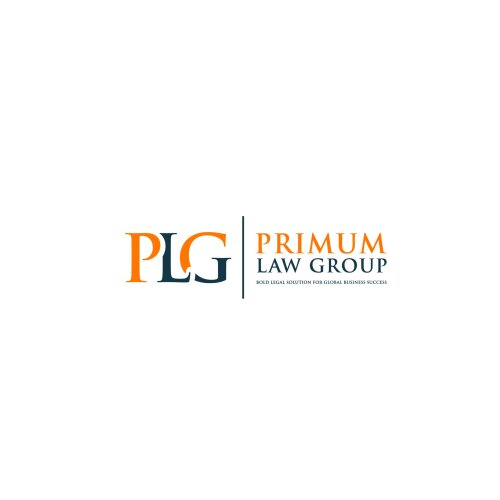Best Due Diligence Lawyers in San Francisco
Share your needs with us, get contacted by law firms.
Free. Takes 2 min.
List of the best lawyers in San Francisco, United States
About Due Diligence Law in San Francisco, United States
Due Diligence is a legal process that involves conducting thorough investigations and assessments to ensure the accuracy and completeness of information about a person, company, or property. In San Francisco, United States, Due Diligence plays a crucial role in various transactions, such as mergers and acquisitions, real estate purchases, and investments.
Why You May Need a Lawyer
Seeking the assistance of a lawyer experienced in Due Diligence can be beneficial in several situations. Some common scenarios where legal help may be required include:
- When conducting due diligence investigations for mergers and acquisitions
- When purchasing or selling real estate properties
- When investing in businesses or startups
- When dealing with financial transactions or loan agreements
- When handling contracts and negotiations that require careful examination of information
Local Laws Overview
San Francisco has specific laws and regulations that are particularly relevant to Due Diligence. Some key aspects to consider include:
- Disclosure Requirements: Sellers are obligated to disclose certain information about the property they are selling, such as known defects, potential hazards, or past legal issues.
- Zoning and Land Use Regulations: Due Diligence may involve understanding the applicable zoning laws and restrictions that affect the use or development potential of a property.
- Environmental Compliance: San Francisco has regulations pertaining to environmental issues, including the assessment of potential contamination on a property.
- Securities Law: When conducting Due Diligence for investments, securities laws and regulations are important to consider.
Frequently Asked Questions
1. What is the purpose of Due Diligence?
Due Diligence allows individuals and businesses to gain a comprehensive understanding of the subject matter involved in a transaction or legal matter. It helps identify risks, verify facts and figures, and make informed decisions.
2. How long does Due Diligence typically take?
The duration of the Due Diligence process varies depending on the complexity of the matter and the availability of information. It can range from a few weeks to several months.
3. Can I perform Due Diligence on my own without hiring a lawyer?
While it is possible to undertake some aspects of Due Diligence without legal assistance, it is highly recommended to consult with a lawyer who specializes in Due Diligence. They can provide expertise, ensure compliance with local laws, and protect your interests.
4. What are some red flags to look for during Due Diligence?
Red flags during Due Diligence may include undisclosed liabilities, legal disputes, environmental issues, inaccurate financial statements, or inadequate corporate governance practices. These can have a significant impact on the viability of a transaction or the value of an investment.
5. Are there any legal consequences for not conducting Due Diligence?
Failure to conduct Due Diligence can lead to various legal issues, such as undisclosed risks, financial losses, breached contracts, lawsuits, or regulatory penalties. It is crucial to exercise due diligence to mitigate potential legal consequences.
Additional Resources
For further information and assistance regarding Due Diligence in San Francisco, consider reaching out to these resources:
- San Francisco Bar Association - Due Diligence Section
- San Francisco Board of Supervisors - Legal Resources
- California Department of Consumer Affairs - Due Diligence Guidelines
Next Steps
If you require legal assistance in Due Diligence matters in San Francisco, United States, it is advisable to:
- Research and compile all relevant information about the subject matter.
- Identify potential areas of concern or specific questions you have.
- Consult with an experienced Due Diligence lawyer to assess your case and discuss possible solutions.
- Provide all necessary documents and information to your lawyer.
- Closely work with your lawyer during the Due Diligence process and follow their guidance on how to proceed.
Lawzana helps you find the best lawyers and law firms in San Francisco through a curated and pre-screened list of qualified legal professionals. Our platform offers rankings and detailed profiles of attorneys and law firms, allowing you to compare based on practice areas, including Due Diligence, experience, and client feedback.
Each profile includes a description of the firm's areas of practice, client reviews, team members and partners, year of establishment, spoken languages, office locations, contact information, social media presence, and any published articles or resources. Most firms on our platform speak English and are experienced in both local and international legal matters.
Get a quote from top-rated law firms in San Francisco, United States — quickly, securely, and without unnecessary hassle.
Disclaimer:
The information provided on this page is for general informational purposes only and does not constitute legal advice. While we strive to ensure the accuracy and relevance of the content, legal information may change over time, and interpretations of the law can vary. You should always consult with a qualified legal professional for advice specific to your situation.
We disclaim all liability for actions taken or not taken based on the content of this page. If you believe any information is incorrect or outdated, please contact us, and we will review and update it where appropriate.















